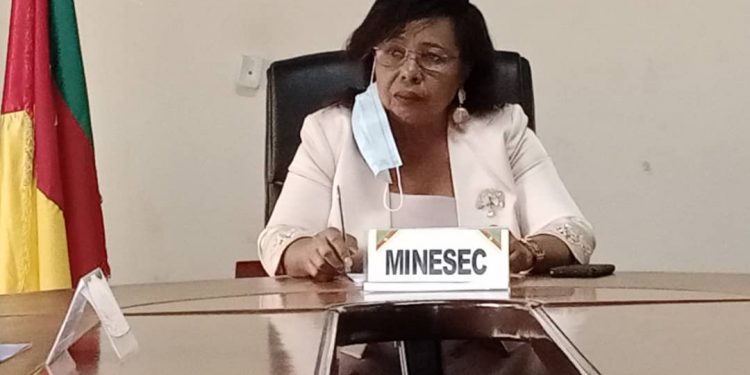Cameroon has reiterated the right of pregnant students to education
The country’s Minister of Secondary Education, Prof. Nalova Lyonga in a circular (N0. 02/22 of April 22, 2022) on the Procedures for Handling Cases of Student Pregnancy in Government and Private Secondary Schools, ordered school administrators not to dismiss pregnant students.
According to Artice 26 of the Unversal Declaration of Human Rights: “
Everyone has the right to education. Education shall be free, at least in the elementary and fundamental stages. Elementary education shall be compulsory. Technical and professional education shall be made generally available and higher education shall be equally accessible to all on the basis of merit.
Education shall be directed to the full development of the human personality and to the strengthening of respect for human rights and fundamental freedoms. It shall promote understanding, tolerance and friendship among all nations, racial or religious groups, and shall further the activities of the United Nations for the maintenance of peace.
Parents have a prior right to choose the kind of education that shall be given to their children.”
The minister instructed that a pregnant girl should be allowed to continue school until the 26th week of pregnancy, after which she may request to be placed on maternity leave.
After birth the young mum is expected back in school “provided that health, work and disciplinary requirements are met. “
She urged school authorities to “apply the same measures to the author of the pregnancy, if he is a student; to mobilize all available human resources to provide psychosocial and psychological support to the students concerned”
Prof. Nalova Lyonga instructed that in the case where a school staff is the author of a student’s pregnancy “appropriate disciplinary measures” should be taken against him
According to the Cameroon Medical Council, 25 percent of pregnancies in the country occur in girls of school going age, and 20 percent of pregnant teens do not return to school.
Going by the World Health Organization, teenage pregnancies constitute a serious health and social problem worldwide. According to a 2008 report, about 16 million births occurred in low income countries by adolescent mothers leading to consequences such as school dropout, juvenile delinquency, violence, suicide and sometimes homicide.
It should be noted that adolescent pregnancy constitutes a public health problem in Cameroon as 12 percent and 9.3 percent of all deliveries at the University Teaching Hospital CHU and the Central Hospital in Yaounde respectively are teenage. Cameroon is also believed to have one of the highest adolescent fertility rates in West and Central Africa.
The World Health Organization in a January 2020 report holds that every year, an estimated 21 million girls aged15-19 years in developing regions become pregnant and approximately 12 million of them would give birth.
According to Cameroon’s Minister of Secondary Education, in the past, pregnant students in both government and private secondary schools in the Central African country were not treated fairly, as they were usually dismissed from school
She argued that the dismissal of pregnant students was not in accordance with the law of free of education and gender equality.
“This practice is against government policy of keeping students in school without discrimination. It is also contrary to government’s policy of promoting gender equality and preventing the dismissal of vulnerable students. It has caused girls to drop out of school,” she argued.
Because the right to education is a human right, the Minister’s instruction has been largely commended, as it is also seen as a move to bridge the inequality gap between the boy and girl school attendance.
However, young girls are still trapped in the dilemma of making a decision upon having discovered with an unwanted pregnancy.
Atem Stacy, 19, who is five-month pregnant, says: ‘’ My mother wants me to terminate the pregnancy because it will be difficult for her to support me. I have not disclosed this to any one in my school despite the Letter of the Minister. I am in a delicate dilemma and the pregnancy is growing really fast’’ she laments.
Adeline Ade is a youth counselor with a specific message to young people. ‘’ Young people today must be accompanied. A lot is being shared on social media, parents must take their responsibility to monitor, communicate and teach their children how they should preserve their dignity no matter what’’.
It’s been slightly over three months since the circular letter was signed by the Minister and the press is yet to report on cases of unwanted pregnancy that had become rampant in some public institutions. It would also be fair to say that many had rushed to criticize the Minister for validating deviant act in school.
The right to education is one of the fundamentals of human rights and the act by the Minister so far has been seen as a move to bridge the inequality gap in terms of boy/ girl school attendance.




